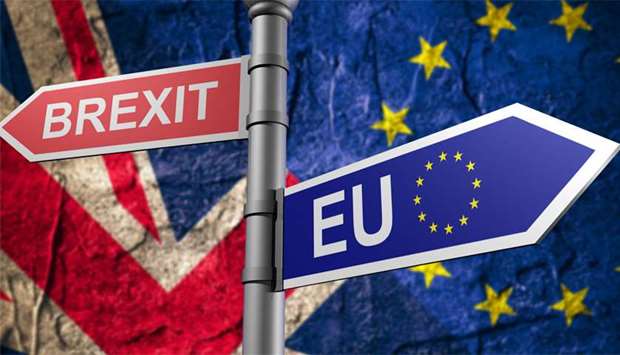The UK government yesterday defied threats from the European Union of legal action over contentious Brexit legislation, and pushed back against a brewing revolt within its own ranks for violating a binding treaty.
The UK bill has further complicated the messy divorce process as Britain unpicks nearly 50 years of European integration, and European Commission vice president Maros Sefcovic rushed to London to demand clarification.
The bill’s potential implications for Northern Ireland — which is meant to enjoy a special status after Brexit — also prompted a threatening reminder from powerful US Democrat Nancy Pelosi for London to uphold the troubled territory’s peace process.
Serving MPs and grandees of Prime Minister Boris Johnson’s Conservatives, including former prime minister John Major and ex-party leader Michael Howard, issued their own sharply worded reminders that the rule of law was sacrosanct.
“How can we reproach Russia or China when their conduct falls below internationally accepted standards, when we are showing such scant regard for our treaty obligations?” Howard told the upper chamber House of Lords.
At the meeting, Sefcovic told senior British minister Michael Gove that unless the measures were withdrawn “by the end of the month”, Brussels would consider going to court.
The European Commission warned that Britain “has seriously damaged trust between the EU and the UK”, and scorned Downing Street’s contention that the bill will preserve the peace in Northern Ireland.
“In fact,” the statement said, Brussels “is of the view that it does the opposite”.
The British government, however, signalled no retreat. “I made it perfectly clear to the vice president Sefcovic that we would not be withdrawing this legislation and he understood that. Of course he regretted it,” Gove said.
Asked about the mounting disquiet in Conservative ranks, he said all sides would get a chance to review the bill in parliament next week, and said it was “critical” for businesses and peace in Northern Ireland.
The bill would give British ministers unilateral powers to regulate trade among England, Scotland, Wales and Northern Ireland, once the force of EU law expires after a post-Brexit transition period at the end of this year.
But under the EU withdrawal treaty, Britain is meant to liaise with Brussels on arrangements for Northern Ireland, which will have the UK’s only land border with the EU, and where 30 years of bloodshed ended with a historic peace deal in 1998.
France told Britain it was “unacceptable” to violate the EU treaty, and the pound slumped further on currency markets with businesses growing ever-more alarmed that the coronavirus-hit UK economy could fall off a Brexit cliff-edge at the end of this year.
Irish Premier Micheal Martin, who spoke by phone with Johnson on Wednesday evening, said such an outcome would be “gross irresponsibility” on top of the economic havoc inflicted by Covid-19.
EU officials — and Johnson’s opponents at home including in the UK’s devolved governments — have ridiculed Downing Street’s argument that the treaty was written “at pace” and contained unforeseen problems relating to a protocol on Northern Ireland.
But the government published a legal position to spell out its belief that notwithstanding any binding promises to the EU, “parliament is sovereign as a matter of domestic law and can pass legislation which is in breach of the UK’s treaty obligations”.

